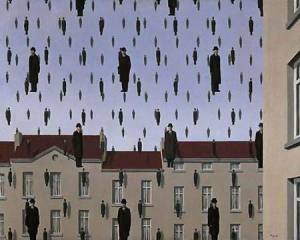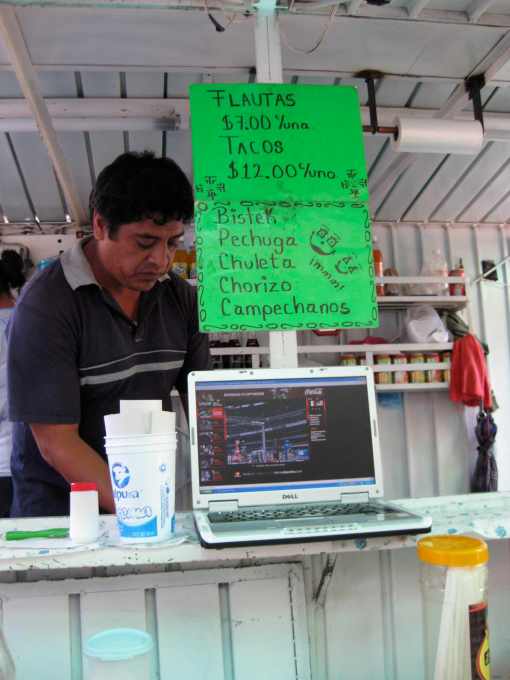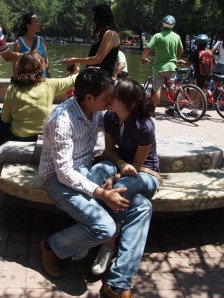Can people with money have love & happiness? Is it harder to be happy when everything comes easily? Is it easier to be happy when you appreciate everything you have? Does having less make you appreciate things more? Is it easier to be happy when you have less to worry about … like less property, less money, less “things” to care for and protect?
Just some questions that have popped into my head lately. Well, to be fair, these thoughts were sparked from an interview I did with a hard-working Mexican woman in the lower Socioeconomic levels in Mexico City. A mother of two and wife, this woman has to get up at 5:30am everyday to get her kids to school on a packed public bus 2 hours away, get to her job where she cookes lunches for 12-15 executive businesspeople (and earns the equivalent of US$10.00 a day), wash all the clothes because in her house they dont have water (in the city!!!), then pick up her kids, return home 2 hours, exercise, make dinner, do all the house chores and make some other crafts she sells around Christmastime, until she can finally sleep at about 1am. Perhaps this life does not seem that abnormal, aside from the very little sleep she gets, even for upper-middle class people in the US. But the difficult part is that in Mexico, she is one of the millions of “informal economy workers” who are out of the system – they have no healthcare, get no government aid, and if they have any kind of crisis, they are easily out on the street – or more likely, living with 15 other people in a 1-bedroom apartment.
From one point of view, you can hear this story and think, wow, this woman has a really tough life. She must be struggling. She must want to have more. But from another point of view, her point of view, in fact, she is “happier than the rich people” – she has more love, has a closer family, laughs more, has more feelings, and shows more expressions on her face than many people who have all the money to buy nice clothes when they feel like it. In her words, “you cannot have money and love at the same time.”
After my interview with this woman, I got to thinking. Is she right? Are people with money less likely to appreciate it and therefor less likely to enjoy their life everyday? Does being able to get 8 hours of sleep every night make me less lighthearted and loving? I´ve come to the conclusion that this is a gross generalization, and there are probably just as many depressed people who dont have money as there are who do have money. However, I think it´s an interesting point about appreciating what you have. And more specifically, who you have.
What this woman doesnt have in economic wealth, she more than makes up for with the people around her. She has 6 siblings who she sees everyday, they work together and hang out together, in a social, warm, caring environment. She has her father and grandmother, who she also spends time with, not to mention her 2 children and husband. In other words, she has a life rich in loved ones, not money.
It´s this richness of close-knit extended families that I often have longed for – it´s what I first fell in love with when I lived in Bolivia. (Each of my host parents had 10 brothers and sisters who they saw regularly – imagine the social agenda!) I think it is one of the most beautiful characteristics of “Latin” culture. And in many ways it makes Mexico seem richer than the US, though it has much less economic wealth. And it´s what, in my opinion, the US is lacking today, leading to all kinds of emotional and mental problems because people, surrounded by their plasma TVs, their iPods, their laptops, their fancy kitchen appliances, their shoes and clothes in their big solo apartments, deep-down feel a bit lonely. A bit lost. While people with less economic wealth cannot afford to live alone, and perhaps feel the need for “alone-time” sometimes, they also have a much stronger network of people constantly around them. Which is a beautiful thing, in my opinion!
I think it is possible to have both economic wealth and emotional wealth, but I would venture to say that it is the people around you that make the emotional wealth possible. And unfortunately, working long and hard to get the economic wealth has a tendency to drive away your loved ones offering you emotional wealth. Maybe we need to learn to value and guard our emotional wealth in “Happy Banks.” Thoughts??




















